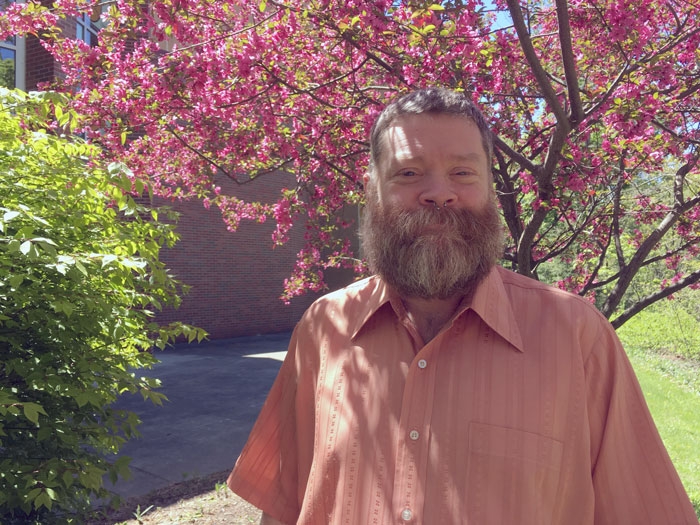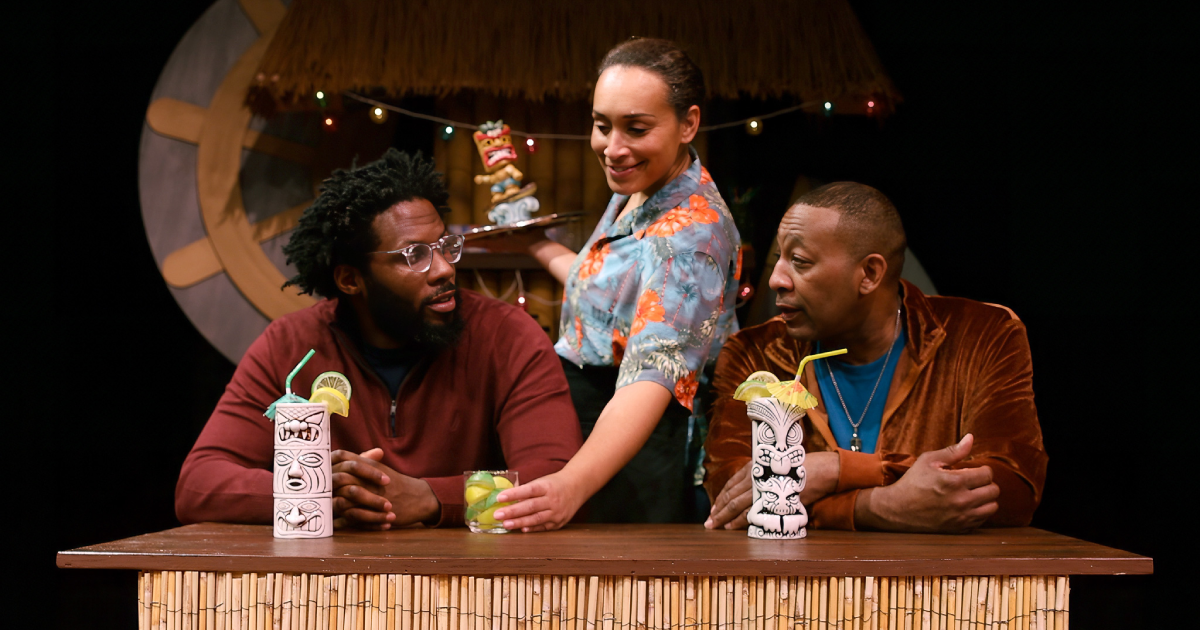Randy Wyatt is a local playwright and professor at Aquinas College, where he directs the theater program. A native of Marshfield, Mass., Wyatt went to college in Grand Rapids and grad school in Texas and Minneapolis. After getting his master’s of fine arts in directing, he worked in Chicago for six months before Aquinas contacted him about a position. It’s been 10 years since.
Wyatt has 12 published plays that have been performed in 14 countries around the world. He has directed at Aquinas, Actors’ Theatre Grand Rapids and Circle Theater. Wyatt has a passion for adult contemporary theater and asking the tough questions, raising awareness and making the audience uncomfortable at times to realize a point. Wyatt just helped to launch the new Theater for Social Change major at Aquinas College.
We sat down with the hardworking playwright to talk about his passion for changing perspectives through theater.
What does your work look like at Aquinas College?
At Aquinas, our entire focus is contemporary work. Once and awhile we’ll do something like Shakespeare, but even if we do classical stuff, I am looking for recent adaptations of that classical stuff. We’re one of the few theater programs in the country to be focusing so much on stuff that’s been in the last 20-25 years, and that is something I’m pretty proud of.
Aquinas allows me a freedom of artistic expression that I both appreciate and defend.
Is there an issue teaching at a Catholic college as a gay man?
My being open and honest about my sexuality at school has never been a problem the way it was in my past (at other institutions) … and students will come talk to me pretty openly about those issues, moreso than they will go to other people who are maybe sympathetic but don’t identify and that’s something I take seriously.
How has that changed over time?
A lot of my students have not had the, frankly, pretty oppressive experiences I’ve had. It blows my mind, still, that gay 20-year-olds are so confident and open and have a million resources and I’m like, where was all this when I was in the mid-90s? (LGBT students) can get frustrated with different dialogue points that are happening on campus, and I like to reflect things back like, it can be a lot worse.
What do you tell them?
Catholic students who identify as straight whose faith tells them gays can exist but they can’t act on anything — (they’re) coming from a different place than you, and how do you listen to them the way they should listen to you? … I don’t want to enable oppression. I think people who don’t know anything about LGBT people need to be educated about that, but I also feel like oppression can’t make us entitled to oppress other people. It’s not just simply black and white.
What are some issues you feel connected to?
There are a lot. I think the ones I wind up coming back to are issues of “othering,” and that can be race; it can be LGBT; but it can also be our context in Grand Rapids of religious differences, and how even within a particular faith there can be friction between different sections. I’ve certainly had my shoulder-rubbings with that kind of stuff in the past. (My goal is) to be able to say that the work I do is not advancing an agenda, it’s engendering empathy. How do you change your perspective once your empathy has been tapped?
What are you working on now?
I’m working on a play right now that’s about a woman who escaped a cult, and it takes place in Michigan and asks questions about what makes a cult; what of our current political environment enables cult thinking or cult philosophy; how does it change when people have the courage to leave; what resources do they have; what are their lives like; how do they start again, etc.
And in the future?
Another thing I’m passionate about is water. I’ve been researching and I’ve been working but that’s coming up in the future as something I want to realize as a project. … It’s already a big issue, but it’s going to be a huge issue soon.
What’s significant about the new theater for social change major?
I keep reinforcing (to the students) the fact that what we’re learning in this class is not so you can go out and tell everyone else, through theater, how they need to think like you. That’s not what theater for social change is. Theater for social change should change you at the same time that it’s changing other people. We’re looking to create something that builds to a story point that activates something in the audience, so that they actually go do something instead of feeling cool that they’re watching a message-based piece and then patting themselves on the back.





